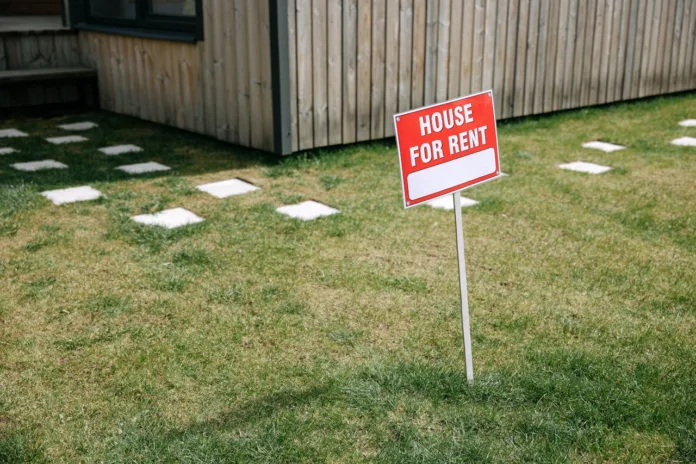A study by Goodlord and the National Residential Landlords Association (NRLA) revealed that 62% of surveyed letting agents advocate for increased regulation of short-term lets.
As the general election approaches, do the major political parties share this view? With the release of manifestos by the top seven parties, we can examine their proposals for the future of short-term lets.
Curious about each party’s stance? Explore my article to find out.
What are the views of letting agents and landlords on short-term lets?

While the popularity of short-term lets has grown in recent years, they have also attracted attention from the government.
Ahead of the general election, the government has responded to concerns about over-tourism and the impact on the supply of privately rented accommodation.
There have been calls to manage the growth of short-term lets locally to address these issues. According to a report from Goodlord and the NRLA, 62% of letting agents support the introduction of such controls.
In contrast, 19% of letting agents oppose these measures, arguing that they are unnecessary for the sector.
Among landlords, 39% agree that greater powers are necessary to regulate short-term lets, outweighing the 28% who firmly oppose local controls.
What is the status of short-term lets?

The government has defined a short-term rental property as follows:
- A property, or part of a property, provided by a person (“the host”) to another person (“the guest”)
- Used by the guest as accommodation other than their principal residence
- Provided in exchange for payment, regardless of whether it’s by the guest
- Provided as part of a trade or business conducted by the host
In February 2024, a statement was issued promising to establish “the legal framework for a registration scheme under the Levelling Up and Regeneration Act 2023.”
This framework will include a mandatory national registration scheme administered locally across England. Data from this scheme will assist local authorities in determining the number of short-term lets in an area, addressing community and housing impacts.
Additionally, a new “use class” will allow homeowners to rent out their primary or sole residence for up to 90 days annually.
However, with the general election underway, the timeline for implementing these new measures remains uncertain.”
The Labour Party’s stance on short-term lets
The Labour manifesto pledges to bring about “Change” in the UK, outlining five key missions aimed at uniting the country.
Although specific commitments within the private rental sector have been outlined, the manifesto does not include any mention of addressing short-term lets.
This does not imply that the party will not address the issue if elected; rather, they have not yet made additional promises regarding it.
The Conservative Party’s plans for short-term lets
In the event of re-election, the Conservatives intend to reintroduce and pass the Renters (Reform) Bill in Parliament.
If the Renters (Reform) Bill is enacted, it will have implications for short-term lets.
A key provision of the Renters (Reform) Bill aims to “prevent landlords from letting their property as short-term or holiday accommodation for three months after using possession grounds to move into or sell their property.”
In their manifesto, the Conservatives have pledged to ensure that “councils have the necessary powers to manage the unchecked growth of holiday lets.” However, the specific approach for implementing this policy remains unclear.
The Reform Party’s stance on short-term lets
The Reform Party aims to enable more individuals to own their own homes by facilitating widespread housebuilding and reducing immigration.
A primary commitment outlined in their manifesto is to repeal the Renters’ (Reform) Bill, which they deem insufficient in tackling issues within the private rental sector.
Instead, the Reform Party intends to enhance oversight, appeals, and enforcement procedures to improve the renting experience.
The Liberal Democrats’ proposals for short-term lets
The Liberal Democrats have pledged to grant local authorities enhanced powers to regulate second homes and short-term lets within their jurisdictions.
Unlike other political parties, the Liberal Democrats have outlined specific measures to achieve this:
- Empower local councils to impose council tax increases of up to 500% on properties designated as second homes, along with a stamp duty surcharge for overseas residents purchasing such properties.
- Introduce a new planning classification specifically for these types of properties.
The Green Party’s stance on short-term lets
The Green Party’s manifesto does not include specific proposals regarding short-term lets that would impact landlords and letting agents.
Instead, their manifesto “Our Fair Deal for Renters” focuses on plans for the private rental sector, which include measures such as rent controls, abolishing no-fault evictions, and establishing private residential tenancy boards.
Plaid Cymru’s commitments regarding short-term lets
Plaid Cymru’s manifesto emphasises holiday homes within Wales.
Historically, the party has endorsed several initiatives aimed at addressing the issue of second and holiday homes.
In Wales, local authorities currently mandate the registration of property use changes. Plaid Cymru now proposes to implement a limit on the number of second and holiday homes in Welsh communities.
Their manifesto also outlines efforts to eliminate any loopholes that could allow holiday homes to operate under the guise of legitimate letting businesses.
The Scottish National Party’s stance on short-term lets
Like the Green Party, the Scottish National Party’s manifesto does not address short-term lets.
Instead, the party focuses on proposals such as increasing the Local Housing Allowance annually and abolishing the bedroom tax.
Each political party in the UK presents distinct proposals and priorities concerning the regulation and management of short-term lets. While some parties prioritise local authority empowerment and stringent regulation, others focus on broader housing reforms and tenant protections within the private rental sector. As the political landscape evolves, these promises will shape the future of short-term lets and housing policy in the UK, influencing the rights of landlords, tenants, and the broader community.
Author: Jag Chaggar
